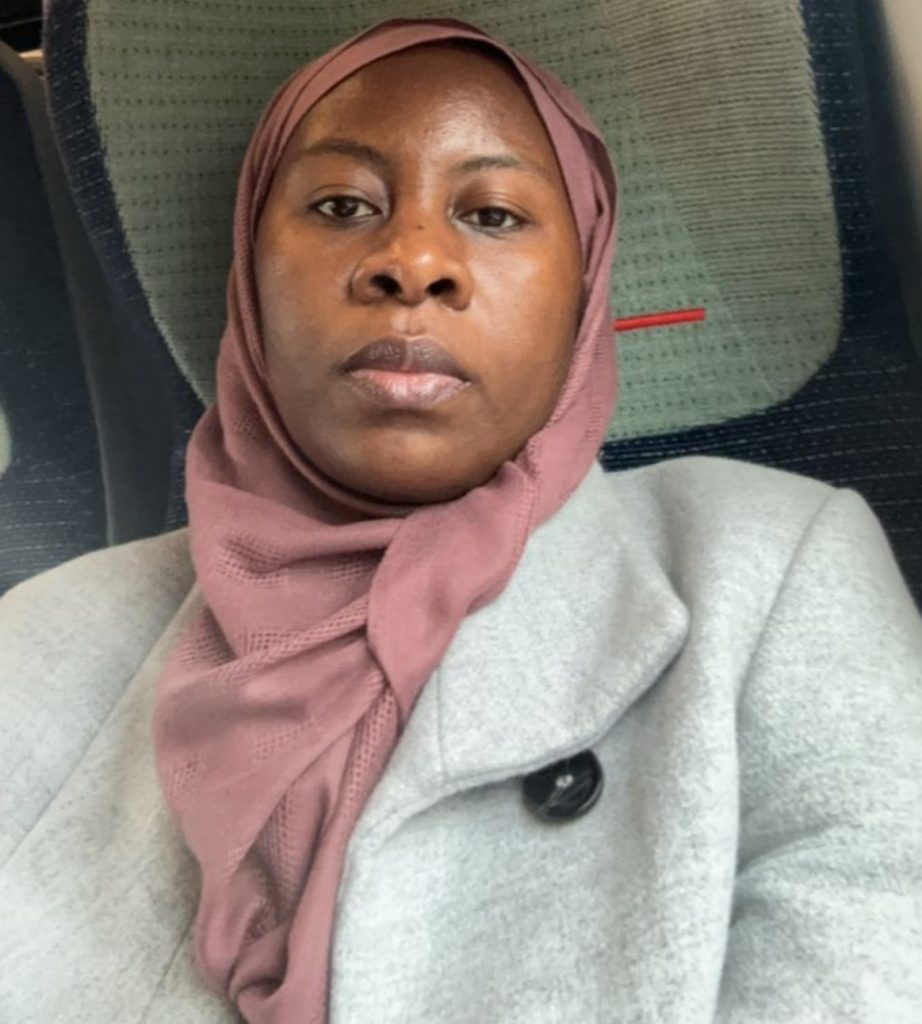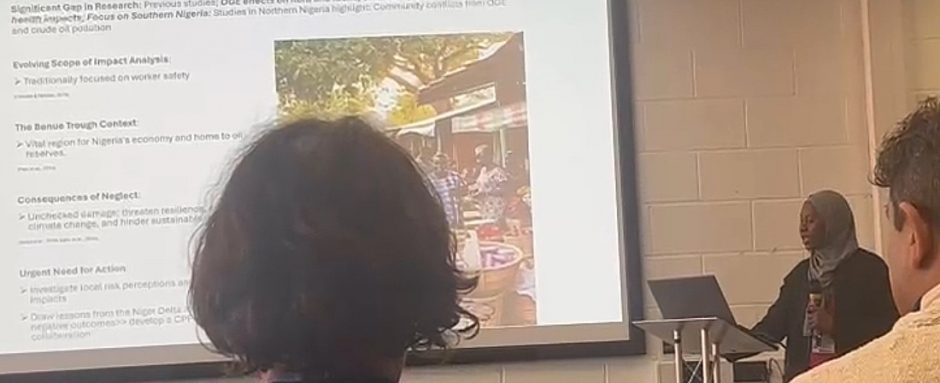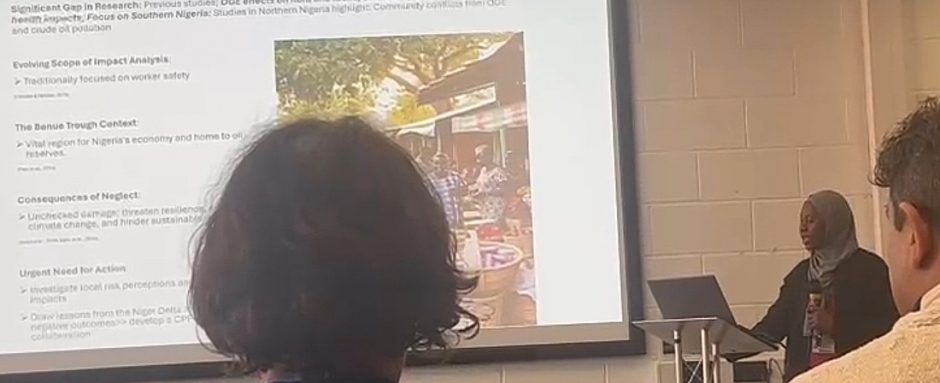Attending the Doctoral Students Conference (DSC) 2025 was a truly memorable and
transformative experience for me. It marked a significant milestone in my PhD journey, as it was
the first time I stood before an academic audience to present my research. Having just concluded
and passed my first-year panel review, I embraced the opportunity to present at the DSC without
hesitation. As a doctoral researcher exploring the public health implications of oil and gas exploration, I had mixed feelings of nervousness and excitement to share my work with fellow students and faculty. My research focuses on the assessment of knowledge and perceptions of community members regarding the public health impacts of oil and gas exploration in the North-eastern part of Nigeria.
Although faced with socio-economic disadvantage, the region had become increasingly relevant
in the energy landscape in Nigeria. Communities in this region face growing environmental
health challenges which would inadvertently be aggravated by emissions from oil and gas
extractive activities. However, their voices and lived experiences are often neglected in policy
discussions.
My deep-rooted passion for environmental and public health is my major motivation for
undertaking this research. Through this study, I aim to highlight how local knowledge and
awareness can be instrumental in informing more effective risk communication, improving
stakeholder engagement, and influencing inclusive and sustainable policies.
Preparing for the Big Day: My preparation for the presentation was both an intense and
rewarding process. I had to distil months of research into an informative, engaging, and concise
10-minute presentation. This involved creating my slides, practicing delivery several times, and
anticipating possible questions. The anticipation of possible questions was “scary” as I was so
afraid of not being able to answer questions that would be thrown at me, given the wide scope of
my research. This compelled me to do more and more research.
However, the support I received from my supervisors, peers and even family was great and beneficial. The constructive feedback provided, helped me feel less nervous and more confident. Despite my initial bouts of anxiety, I made a conscious effort to remind myself that this conference presentation was a learning opportunity, a chance to grow as both a scholar and a communicator. On the day of the conference, I was informed by the session coordinator that I would be the first person to make a presentation. That sudden revelation jolted me back into my previous nervous state.
I had mentally prepared to observe a few speakers before stepping up myself. The thought
of opening the session in front of a room full of academics felt daunting. I made a request to do
my presentation after a couple other presenters. The session coordinator explained that due to the
technical setup and flow of the program, the order could not be changed. I therefore took a deep
breath, walked up the podium, and took the bull by the horn. I presented during a session focused on environmental health and community resilience named Healing the Planet”.
Sharing my research findings, particularly the key themes emerging from my literature review such as the community narratives arising from the Niger Delta region of Nigeria was empowering. I spoke about the knowledge gaps, socio-economic influences, and the need for better integration of health concerns into environmental decision-making in oil-producing areas.
During the presentation, I was amazed at the level of non-verbal engagement from the audience,
as I had their full attention. Thereafter, I was struck by the applause, compliments and questions
that came. I received thoughtful questions on methodology, cultural context, and the potential
implications of my findings for environmental impact assessments. These interactions not only
affirmed the relevance of my work but also sparked ideas for future directions.
Key Takeaways and Lessons Learned: This experience came with several valuable lessons for
me. It taught me two most important lessons. Firstly, presenting my research helped me clarify and
refine my communication of complex ideas to a diverse audience. It showed me the importance
of telling a story through connecting data, context and impact in a resonating manner. Secondly, I
understood that conferences are spaces to connect, reflect and inspire; and not just platforms to
share results. I left the room as a more confident and motivated researcher, validated in my work.
A major highlight of the conference was meeting fellow PhD students working on a range of
diverse topics. Conversations that arose from this reminded me that research does not need to be
a “solo” journey. Rather, it thrives on dialogue and collaboration. Other sessions from the
conference broadened my understanding of interdisciplinary topics. Moving forward with my
research, I carry on not just the feedback I received, but also the encouragement and solidarity I
found at the conference.
Finally, presenting at the DSC (2025) was a defining moment in my doctoral journey. It pushed
me beyond my comfort zone. I would like to encourage any doctoral student unsure about taking
that first step onto the stage; to GO FOR IT. It is an experience that sharpens the voice, builds
confidence and connects one with a wider research community. I am most grateful to the
organizers for creating such an inclusive and supportive platform for upcoming scholars. I look forward to an opportunity to present again with more insights and stories to share.
Thank you
Bilkisu Kuchazi
Bilkisu Mohammed Kuchazi is a pharmacist and environmental public health researcher pursuing a PhD in Health, Safety, and Environment at Manchester Metropolitan University, UK. Her research focuses on the public health impacts of oil and gas exploration in Nigeria, with an emphasis on community perceptions, environmental justice, and policy improvement. She is passionate about advancing climate and health equity through evidence-based research and community engagement.





